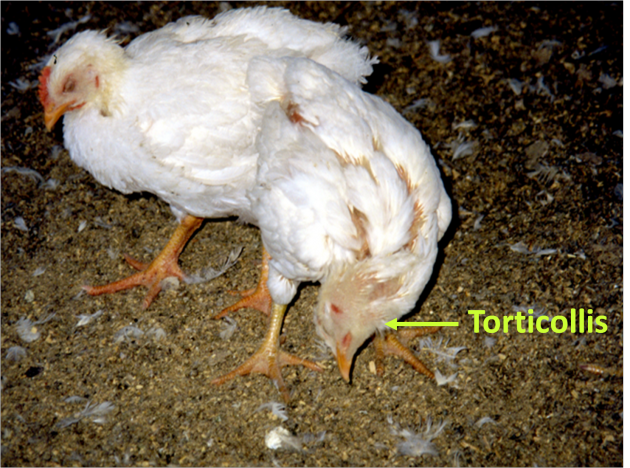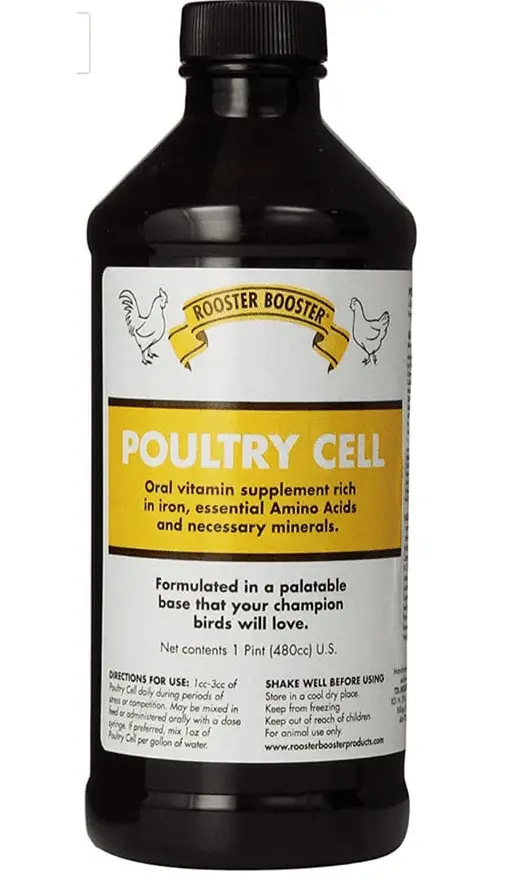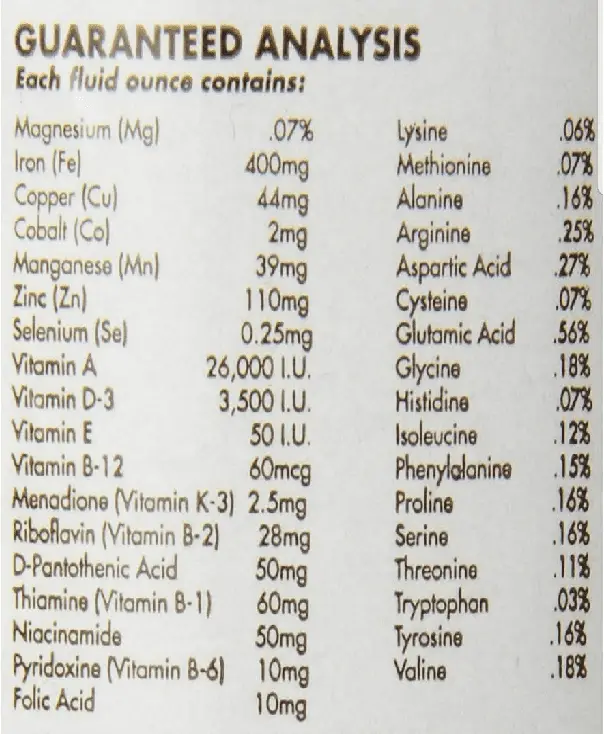This article contains affiliate links, and we may earn a commission at no cost to you if you choose to purchase through these links. I never recommend products that I do not trust or will not advise my veterinary clients and patients to use.
It can be very distressing to find one of your silkies suddenly unable to lift her head. Most likely, she seemed fine less than a day ago.
Wry neck in silkies is not a condition but rather a symptom commonly associated with vitamin E and Selenium deficiency. The condition is not contagious and is curable by supplementing Vitamin E and Selenium while providing nursing care to ensure the bird can eat and drink. If treated effectively, it may take 2-4 weeks to cure wry neck.
Synonyms for wry neck include torticollis, crookneck, twisted neck, star gazing, and in hatchlings, it is called crazy chick disease.

What Is Wry Neck?
Wry neck is instead a symptom and not a condition and refers to the abnormal twisted posture of the neck. Chickens suffering from this symptom will usually carry their head low and will be unable to keep their head in a normal position.
In silkie chickens, wry neck is often associated with a vitamin E and Selenium deficiency. Still, due to it being a symptom of a multitude of poultry diseases, it is crucial to be able to differentiate between a nutritional deficiency and a more severe and potentially infectious condition.
Vitamin E and Selenium are essential antioxidants that play an integral part in protecting muscle and nerve cells against oxidative stress due to normal metabolism. A deficiency, therefore, results in gross weakness in muscles and nerves due to damage caused by oxidative free radicals produced by cellular metabolism.
Can My Silkie Die From Wry Neck?
Wry neck caused by nutritional deficiencies usually has low mortality and high morbidity rate. This means that while the bird may not grow or produce eggs normally, they will usually not succumb to the condition.
Silkies with wry neck are often unable to eat and drink by themselves, so as long as you feed and water them by hand, and keep them separate from the flock to prevent trampling, the likelihood of your silkie dying due to a vitamin E and Selenium deficiency, is very small.
Why Are Silkies So Susceptible to Wry Neck?
Truth be told- we are not sure yet. Other bantams such as Polish chickens seem to be equally susceptible to wry neck as silkies. There probably is some genetic component that has not yet been identified, and more research on this is needed before conclusions can be made.
There are some theories in silkie communities that silkies who have vaulted skulls are more susceptible to wry neck: yes, these birds are susceptible to neurological symptoms but not necessarily due to nutrient deficiencies, but rather due to their brain not being adequately protected by a skull – birds with vaulted skulls should be culled.
How To Treat Wry Neck Due To Vitamin Deficiency
Nursing Care
If your silkie is unwell, you should always consult your vet. Although vitamin E and Selenium deficiency are the most common cause of wry neck in silkies, many other conditions may present with similar symptoms (discussed in more detail later in this article).
Separate the affected silkie from the rest of the flock to prevent trampling or bullying. You may choose to keep them in a crate in the coop to keep them in sight and sound of their silkie companions, or, depending on how comfortable the affected silkie is with humans; you may choose to keep them totally separate from the others and indoors.
The location of your wry neck ICU should be in a quiet, warm, dry, and low-stress area.
Most mild to moderate cases of wry neck can eat and drink normally, but in more severe cases, you will need to feed and give water by syringe every few hours. Remember only to give small amounts at a time to allow your silkie to swallow.
If you notice that your bird becomes unable to swallow, it is unlikely that they are suffering from a true vitamin E and selenium deficiency, and other possible conditions need to be explored.
Poultry Cell
The easiest way to treat wry neck is to give one cc or Rooster Booster Poultry Cell twice a day for at least three weeks. Then, you can reduce the frequency to once a day for two more weeks after complete resolution of symptoms.
As a preventative, you can mix 1 ounce with a gallon of water and offer that to the rest of your flock.


Human Vitamin Supplements
Due to vitamin B1 and B12 deficiency sometimes presenting with similar clinical signs, it is safest to add these vitamins to your treatment protocol from the get-go.
You can use the following protocol
| Nutrient | Dose |
| Vitamin E | 400 IU twice a day |
| Selenium | 25 micrograms once per day (maximum daily dose) |
| Vitamin B1 | 1/4 human dose (around 12 milligrams) twice a day |
| Vitamin B12 | 1/4 human dose (approximately 0.6 micrograms) twice a day |
Many silkie owners have successfully treated wry neck with the pediatric supplement Enfamil Poly-vi-sol.
How Long Does it Take For A Silkie to Recover from Wry Neck?
Complete recovery from wry neck due to a nutritional deficiency may take up to 1 month. Continue daily treatment for at least two weeks after symptoms have resolved, after which supplementation with vitamin E and Selenium may be reduced to 3 times weekly.
You may notice a slight improvement within the first 24 hours of treatment; however, these cases often have various ups and downs during their treatment.
How to Prevent Wry Neck
Make sure that your feed is not passed its expiry date. Vitamin E and Selenium are very susceptible to oxidation and will be lost if the feed is not stored correctly or if the feed has passed its shelf life.
Add foods high in vitamin E and Selenium to their diet, such as:
- Spinach
- Asparagus
- Broccoli
- Sunflower Seeds
- Cooked Egg
If your flock seems to be especially susceptible to wry neck, I suggest adding Poultry Cell Rooster Booster to your flock’s drinking water every few days.
For more details on a proper silkie diet and what supplements to give, have a look at this article.
Other Possible Causes For Sudden Loss Of Neck Tone
Botulism
Botulism is a condition causing paralysis. It is contracted after an animal ingests the botulinum toxin produced by the Clostridium Botulinum bacterium. The first clinical signs in chickens include an inability to stand, droopy wings, and floppy neck. It can be fatal in severe cases.
In botulism, the neck is limp and floppy with little to no muscle tone, while cases of wry neck will instead twist their neck and hold it to one side.
Marek’s disease
Marek’s disease is a viral disease that causes tumors to form on the internal organs, skin, muscles, and nerves. This sometimes results in paralysis-like symptoms that may mimic wry neck. Marek’s disease is highly contagious, and the prognosis is poor. It can be prevented by vaccination.
New Castle Disease
New Castle Disease is a highly contagious viral disease that commonly causes rapid onset respiratory signs. The disease has a high mortality rate and can be prevented by vaccination. In some cases, infected birds can present with twisted necks.
If several birds in your flock fall ill with respiratory symptoms and wry neck-like symptoms, your vet will need to check for New Castle disease.
Fowl Cholera
Fowl Cholera is a highly contagious bacterial disease caused by Pasteurella multocida that can cause sudden death in acute cases and lameness, swollen wattles, and torticollis in chronic cases.
If you see any of these symptoms in your backyard flock, your vet needs to investigate the possibility of this severe disease.
Head Injury
A hard knock to the head causing a lesion in the brain can present with symptoms such as an abnormal posture or circling. Some genetic lines of silkies are prone to having vaulted skulls, which means that the skull is not fused completely. This causes parts of the brain to be vulnerable to physical injury.
Birds suffering from a head injury will often have altered mentation, meaning that they will not be completely aware of their surroundings or seem confused and will often not want to eat.
Vitamin B deficiency: Specifically B1 and B12
Vitamin B1 deficiency can cause localized areas of softening of brain and nerve tissue in severe cases. Mild cases present with weight loss and weakness, and severe cases present with stargazing or spastic hyper-flexion of the neck.
Similarly, vitamin B12 deficiency results in weakness that may mimic vitamin E and Selenium deficiency.
We often treat suspected vitamin E and Selenium deficiency with concurrent vitamin B1 and B12. These water-soluble vitamins can do little harm if given to a chicken that is not deficient in these vitamins.

Summary
Wry neck in silkie chickens is most commonly caused by a deficiency in Vitamin E and Selenium; however, it is essential to remember that there are many other possible causes of wry neck.
Nutritional deficiency can be treated by supplementing with a poultry multivitamin daily. However, symptoms may take up to 4 weeks to resolve completely, after which treatment needs to be continued for at least two more weeks.
To prevent wry neck, make sure that the feed is not passed its expiration date and supplement with Vitamin E and Selenium Rich food such as green vegetables, eggs, and sunflower seeds.
References
- Burgos, S., Bohorquez, D. and Burgos, S., 2006. Vitamin Deficiency-Induced Neurological Diseases of Poultry. International Journal of Poultry Science, 5(9), pp.804-807.
- Judah, V. and Nuttall, K., 2017. Exotic animal care & management. Boston: Cengage Learning.
- Rengaraj, D. and Hong, Y., 2015. Effects of Dietary Vitamin E on Fertility Functions in Poultry Species. International Journal of Molecular Sciences, 16(12), pp.9910-9921.
- Sun, L., Huang, J., Deng, J. and Lei, X., 2019. Avian selenogenome: response to dietary Se and vitamin E deficiency and supplementation. Poultry Science, 98(10), pp.4247-4254.
- Wakenell, P., 2016. Management and medicine of backyard poultry. Current Therapy in Avian Medicine and Surgery, pp.550-565.

